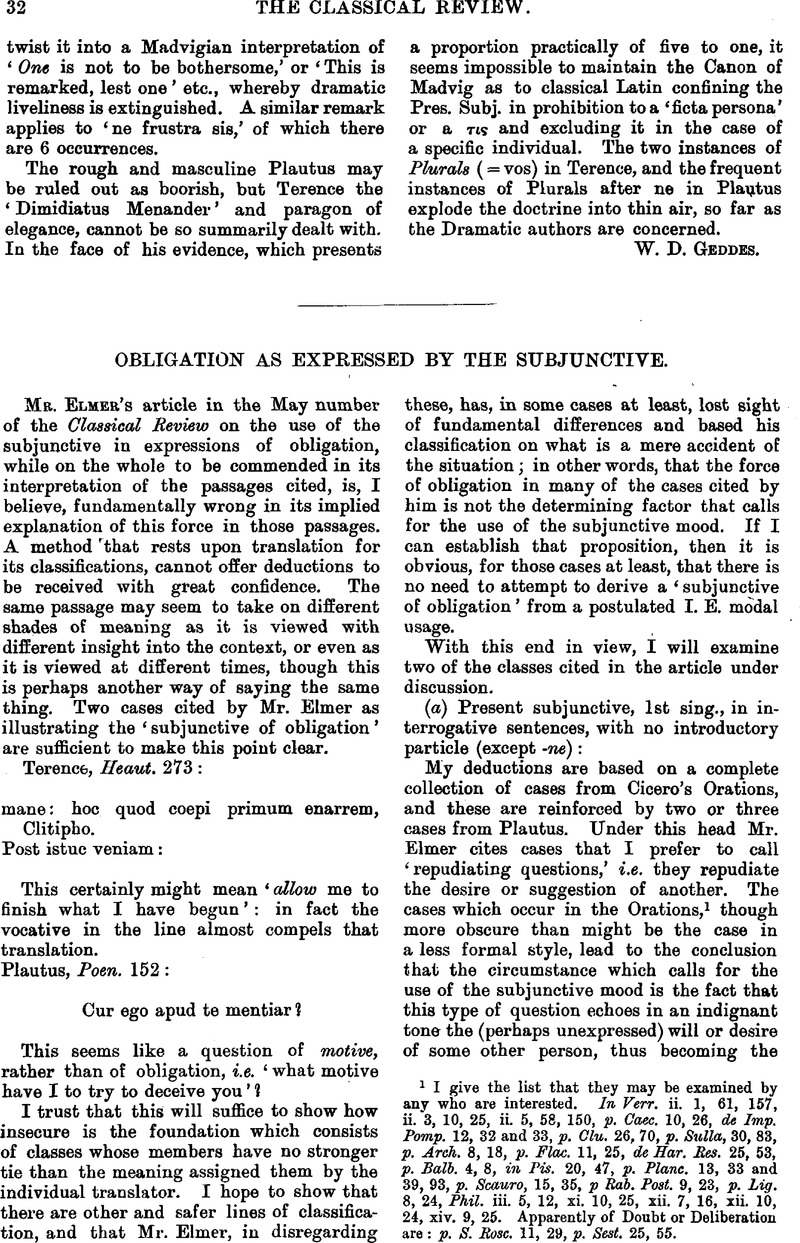No CrossRef data available.
Published online by Cambridge University Press: 27 October 2009

page 32 note 1 I give the list that they may be examined by any who are interested. In Verr. ii. 1, 61, 157, ii. 3, 10, 25, ii. 5, 58, 150, p Caec. 10, 26, de Imp. Pomp. 12, 32 and 33, p. Olu. 26, 70, p. Sulla, 30, 83, Arch. 8, 18, p. Flac. 11, 25, de Har. Res. 25, 53, Balb. 4, 8, in Pis. 20, ii, p. Plane. 13, 33 and 39, 93, p. Scauro, 15, 35, p Rab. Post. 9, 23, p. Lig. 8, 24, Phil. iii. 5, 12, xi. 10, 25, xii. 7, 16, xii. 10, 24, xiv. 9, 25. Apparently of Doubt or Deliberation are: p. S. Rose. 11, 29, p. Sest. 25, 55.
page 33 note 1 Possibly only suggestion.
page 33 note 2 To guard against misapprehension, it might be well to statethat light is thrown upon the nature of the repudiating question by cases outside of this person and number : these aid in reaching the above view.
page 34 note 1 This of course excludes wishes, which do not readilyclass with the other cases.
page 34 note 2 See E. P. Morris's article in vol. xviii. of the American Journal of Philology, on the uses of the subjunctive in Plautus, particularly page 133 and pages 275 ff.
page 34 note 3 Paul in his Principien tends to the belief that different forms (as for instance subjunctive and optative forms) in early time wereused without clear distinction of meaning, and that time and use gradually portioned out a set of ideas for a form to express. (See Strong's translation, §§ 410 and 433.) If that be true, it is almost impossible to tell how far this process of differentiation of meaning had advanced when Latin began its independent development : so the subject is almost hopeless.
See also E. P. Morris's article cited above, pages 400 and 401.